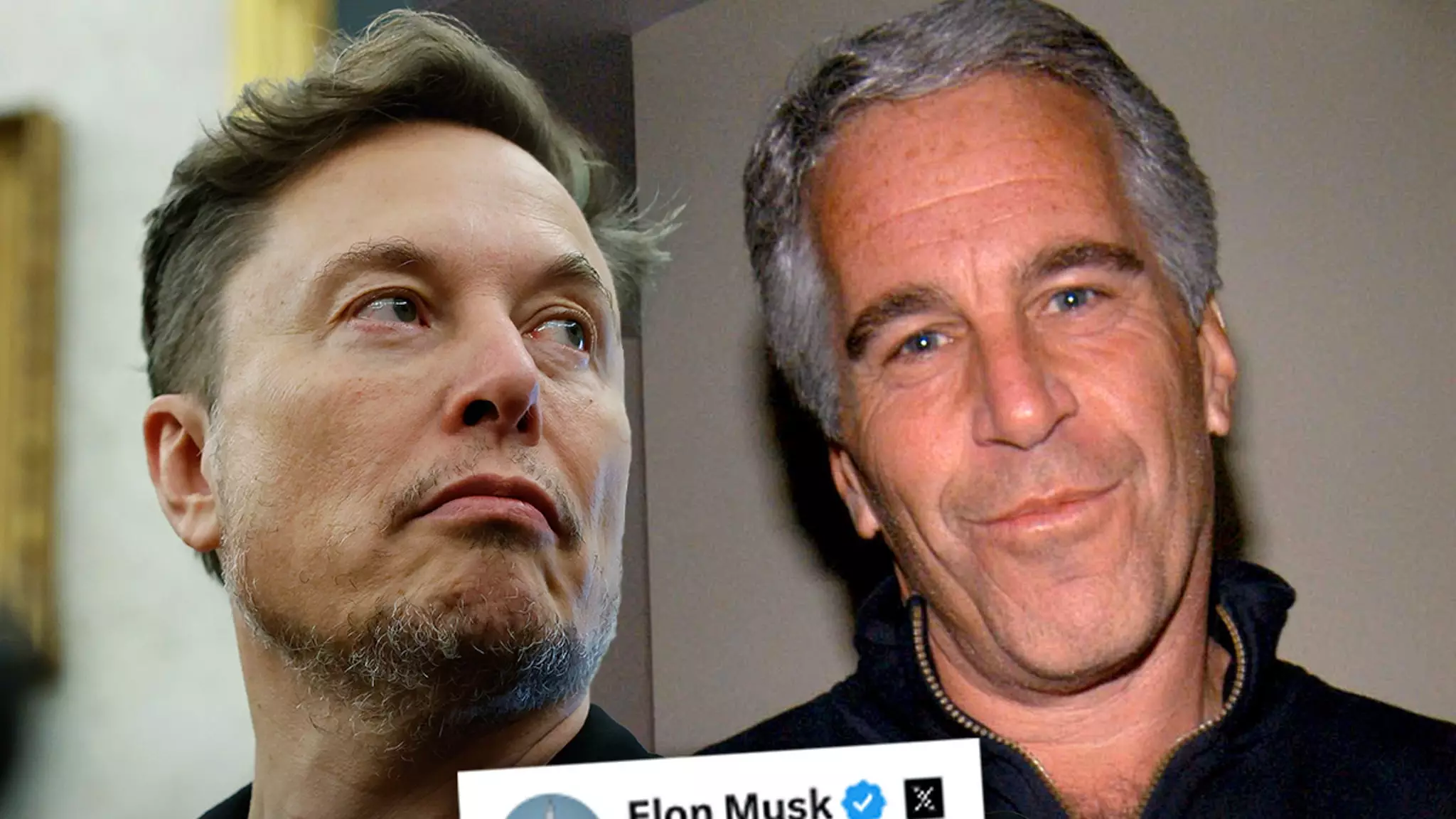Elon Musk, the tech billionaire and CEO of Tesla and SpaceX, has long been known for his outspoken nature. However, his recent comments regarding the Jeffrey Epstein case reveal a different facet of his influence—one that actively questions established government narratives. Musk’s vocal skepticism, especially on a high-profile platform like X (formerly Twitter), serves more than mere commentary; it challenges the very foundations of public trust in official investigations and judicial processes. His tweets suggest a belief that powerful figures and complex conspiracies remain concealed from public view, fueling suspicion rather than dispelling it.
Musk’s capacity to sway public opinion is considerable. When he insinuates that key details are hidden or manipulated, he taps into a broader distrust in institutions, amplifying doubts about the case’s transparency. Essentially, Musk is leveraging his platform not just to voice opinions but to question the integrity of justice itself, reinforcing the narrative that elite cover-ups might still be ongoing. Such claims resonate with a segment of the public that perceives official investigations as inherently biased or incomplete, thus further muddying the waters of truth.
The Ramifications of Doubt: From Skepticism to Conspiracy
Musk’s provocative remarks have ignited a wildfire of speculation online. By openly expressing doubts about the official findings—such as the determination that Epstein was a suicide—he contributes heavily to the proliferation of conspiracy theories. His comments, especially his pointed references to high-profile figures like Donald Trump and Ghislaine Maxwell, blur the lines between legitimate skepticism and dangerous insinuation.
The danger lies in the potential erosion of trust. When influential voices cast doubt on official reports, audiences may begin to believe that the truth is deliberately hidden or suppressed. This undermining of confidence can have serious implications for public faith in judicial systems, federal agencies, and the rule of law. While healthy skepticism is vital in a functioning democracy, Musk’s tweets border on conspiracy fomentation, potentially encouraging a fragmentary view of justice where no one believes the facts presented.
Furthermore, Musk’s dismissive attitude towards the official narrative raises questions about responsibility. As a tech leader and public figure, his influence can sway opinions massively. When he aligns with conspiracy theorists or echoes unfounded claims, he risks normalizing distrust and misinformation. His tweets about Epstein’s death, pointing to supposed cover-ups, challenge the bipartisan consensus and open the floodgates of doubt, regardless of factual accuracy.
The Power Dynamics and Cultural Impact
The Epstein case symbolizes a nexus of power, secrecy, and exploitation—an unsettling cocktail that continues to enthrall the public. Musk’s public wrestle with the case’s official findings accentuates a broader cultural phenomenon: a growing impatience with, or rejection of, authoritative accounts. His questioning transforms what might have been considered fringe speculation into mainstream discourse, effectively shaping the narrative around elite immunity and systemic corruption.
Musk’s stance also resonates with a mistrust entrenched in recent decades, where revelations of corruption, abuse, and cover-ups by those in power have become disturbingly common. By openly doubting official reports, he not only positions himself as a skeptic but also as a catalyst for renewed debate about accountability. Yet, this stance carries profound risks—relinquishing faith in institutions that, despite their flaws, serve as pillars of justice can lead to chaos and disillusionment.
The influence of such rhetoric extends beyond the digital sphere. It sparks real-world conversations about transparency, accountability, and the true scope of those who wield influence. In this sense, Musk’s skepticism is both a reflection of societal frustrations and a potential accelerant for distrust, demanding that we reconsider the parameters of credible investigation and factual integrity.
Controversy Served as Catalyst for Greater Discourse
What’s clear is that Elon Musk’s comments are more than fleeting social media antics—they symbolize a larger struggle over truth and control. His willingness to question the outcomes of investigations like Epstein’s suggests a recognition that narratives are, to some extent, manufactured and manipulated by those in power. Whether this stems from genuine doubt or a desire to stir controversy, the effect remains the same: heightened suspicion and a fractured consensus on what is true.
While critics argue that Musk’s assertions are reckless and poised to spread misinformation, supporters believe that challenging the status quo is necessary to prevent complacency and complacency in the face of injustice. His boldness, regardless of accuracy, prompts a vital conversation: are we, as a society, willing to accept official narratives at face value, or should scrutiny be the norm? Musk’s high-profile involvement ensures this dialogue remains in the spotlight, forcing both the public and authorities to examine the foundations of their trust.
Elon Musk’s recent foray into the Epstein controversy exemplifies his role as a disruptor—not just in technology and business but in societal discourse. His willingness to voice doubt confronts us with uncomfortable questions about justice, transparency, and accountability. Whether or not his claims are justified, they undeniably compel us to rethink what we accept as truth and challenge us to look deeper beneath the surface of authority and influence.

